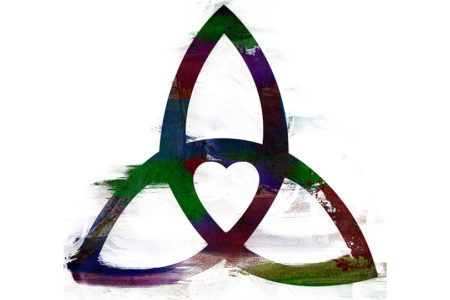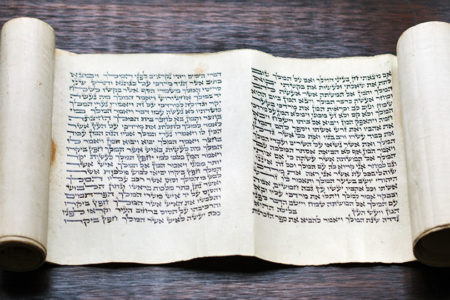What’s In a Name?
Names mean a lot to God. That’s why He specifically chose the Messiah’s name to reflect His mission on Earth.
Listen to Chris Katulka’s interview with Steve Herzig about this article (begins @ 14:15).
“What’s in a name?” Juliet asks Romeo, adding, “That which we call a rose by any other name would smell as sweet.” Well, not exactly.
Names may not have meant much to Shakespeare, but they matter a great deal to God. A number of times He even told people what to name their children (Gen. 17:19; Isa. 8:3; Hos. 1:4, 6, 9).
Nestled in the pages of the Jewish Scriptures are names that commemorate an event or describe a person’s character. Samuel (“asked of God” or “God has heard”) was the son Hannah conceived after she had prayed so fervently for a child. Nabal (fool) was Abigail’s foolish husband. David (beloved) was known as a man after God’s own heart.
Isaac means “laughter” because both Abraham and Sarah laughed when they were told they would become parents in their advanced age. God told Abraham, “You shall call his name Isaac; I will establish My covenant with him for an everlasting covenant, and with his descendants after him” (Gen. 17:19).
What about the Hebrew name Yeshua––Jesus, as we know Him? What is the significance of His name? He was also named by God:
Behold, an angel of the Lord appeared to him [Joseph] in a dream, saying, “Joseph, son of David, do not be afraid to take to you Mary your wife, for that which is conceived in her is of the Holy Spirit. And she will bring forth a Son, and you shall call His name Jesus [Hebrew, Yeshua], for He will save [Hebrew, yoshea] His people from their sins” (Mt. 1:20–21).
The New Testament, of course, was written in Greek. And the name Yeshua appears as Iesous. In English, it is Jesus. Many people think of it as strictly a New Testament name. But that is not the case. According to Michael Brown, who holds a PhD in Near Eastern languages and literatures,
The original Hebrew-Aramaic name of Jesus is yeshu’a, which is short for yehōshu’a (Joshua), just as Mike is short for Michael. The name yeshu’a occurs 27 times in the Hebrew Scriptures, primarily referring to the high priest after the Babylonian exile, called both yehōshu’a (see, e.g., Zechariah 3:3) and, more frequently, yeshu’a (see, e.g., Ezra 3:2).1
Yeshua, or Salvation, is the name God chose for His Messiah. So, before His birth, His mission was known: He would be the Savior “and save His people from their sins.”
You would think this Yeshua would be welcomed with open arms. The prophet Isaiah foretold of Him. He would be the One who “has borne our griefs and carried our sorrows” (Isa. 53:4), “was wounded for our transgressions” and “bruised for our iniquities” (v. 5), was “led as a lamb to the slaughter” (v. 7), and “bore the sin of many” (v. 12). Surely that sounds like a Savior.
When Yeshua was on Earth, He healed the sick, cleansed the leper, fed the hungry, and raised the dead.
Unfortunately, rather than evoking comfort among the Jewish people, the name Jesus, along with His title, Christ (Hebrew, Messiah), often evokes bitterness and even fear.
The reason is simple. For nearly 2,000 years, organized Christendom has blamed the Jewish people for killing Jesus. Many mainline denominations believe the church has replaced the Jews as His Chosen People and the Jewish people are now cursed as “Christ killers.”
That is why the church was involved in three of history’s most horrific persecutions against the Jewish people: the Inquisition, the pogroms, and the Holocaust. All were carried out in the name of Jesus. And since most Jewish people do not know how to distinguish between true Christians and Gentiles, they blame Christianity for these tortures.
In his book Jewish Literacy, Rabbi Joseph Telushkin commented on the term Christ-Killer: “The belief that the Jews killed Jesus made the Jews seem not only hateful but terrifying. After all, only a people with superhuman powers could ‘murder’ God.”2
It is no wonder that, to this day, some Jewish people refer to Jesus as Yeshu, an acronym for “May his name and memory be stricken out.”
I was one of those Jews. I knew my Jewish history, as well as my own family history of relatives murdered in the name of Jesus. Eventually, I came to realize that not all “Christians” hated Jews. In fact, I came to understand that many people who profess to be Christians are not Christians at all. Most true, Bible-believing Christians love the Jewish people. They understand the Bible was written by Jewish men and that Yeshua, the Jewish Messiah and Savior, saved them from the penalty of their sins, just as His name indicates.
In 1975, after attending a Friends of Israel Bible study, I embraced “Salvation”––Jesus––as my Savior and Lord.
Now I rejoice at the words of the great hymn writer Charles Wesley: “Jesus! the Name that charms our fears, that bids our sorrows cease; ’tis music in the sinner’s ears, ’tis life and health and peace.”
What’s in a name? Salvation and peace, if it’s the name Yeshua.
ENDNOTES
- Michael L. Brown, “What Is the Original Hebrew Name for Jesus?” January 3, 2013 <askdrbrown.org>.
- Rabbi Joseph Telushkin, Jewish Literacy (New York: William Morrow, 1991), 462.








